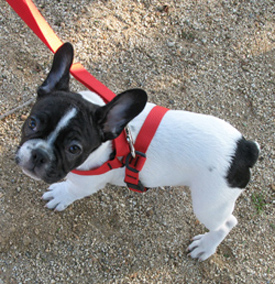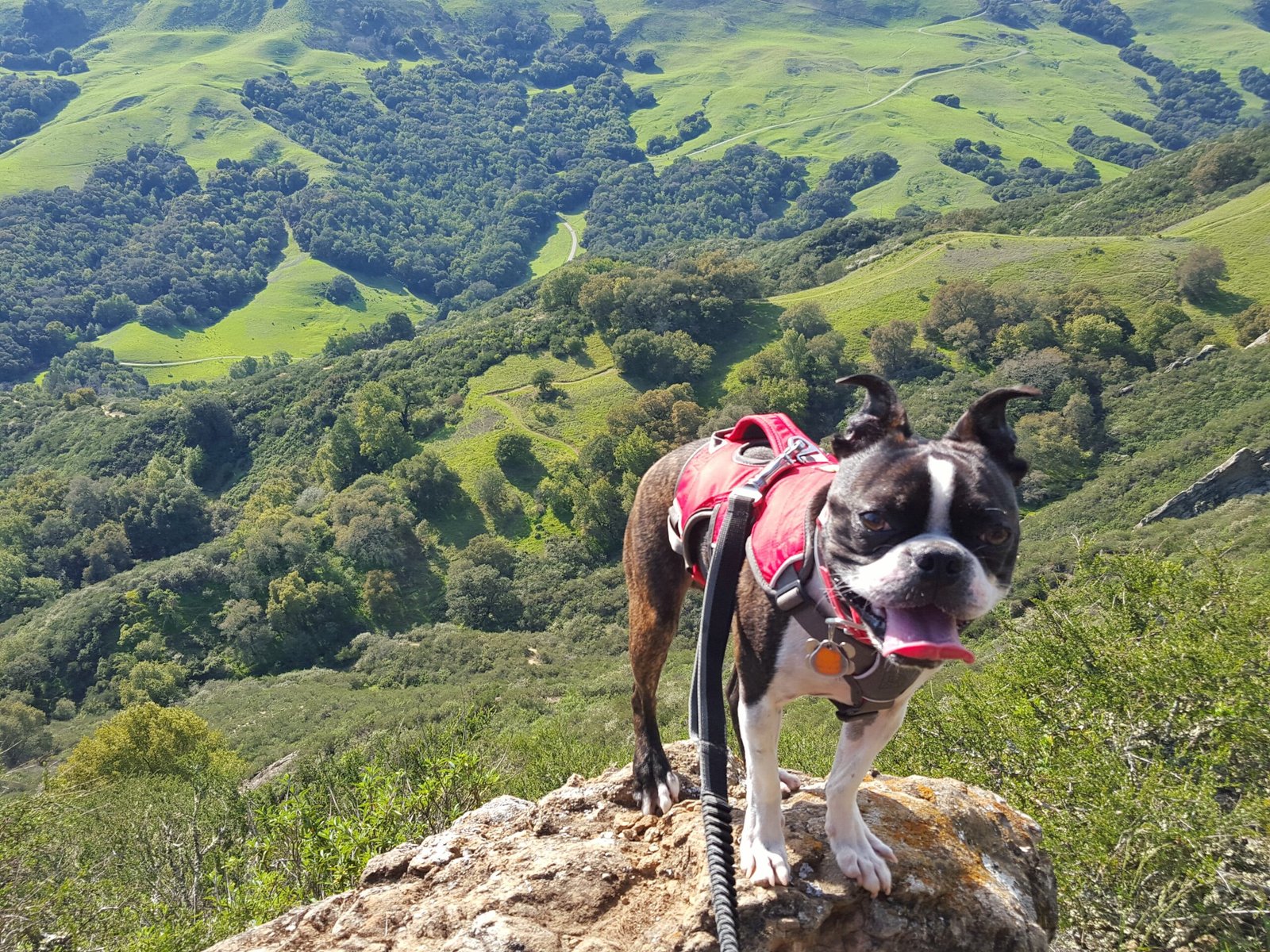Boston terriers are adorable and energetic little dogs known for their charming personalities. Have you ever wondered if these pint-sized pups can handle long walks? Well, you’re in luck! In this article, we’ll explore the question, “Can Boston terriers go on long walks?” and provide all the information you need to know.
Whether you’re a proud Boston terrier owner or considering adding one to your family, it’s important to understand their exercise needs. While they may be small in size, Boston terriers have a lot of energy to burn, making them great companions for walks and outdoor activities. But just how long can they go?
We’ll dive into the world of Boston terriers and their physical capabilities, examining their stamina, endurance, and any factors that may influence their ability to go on long walks. So, grab a leash and let’s embark on this adventure together to find out if Boston terriers are up for the challenge of those lengthy strolls!

Can Boston Terriers Go on Long Walks? Exploring the Exercise Needs of This Popular Breed
Walking is an essential part of any dog’s routine, but when it comes to Boston Terriers, their exercise needs may differ from other breeds. Boston Terriers are known for their adorable looks and friendly nature, but they also have specific physical traits that can affect their ability to go on long walks. In this article, we will delve into the topic of whether Boston Terriers can go on long walks, considering their breed characteristics, health considerations, and tips for providing appropriate exercise for this lovable breed.
The Energy Levels and Physical Abilities of Boston Terriers
Boston Terriers are generally an active breed with moderate energy levels. While they may not have the same endurance as some larger breeds, they can still enjoy a good walk. However, it is important to consider their physical abilities and potential limitations when planning for a long walk. Boston Terriers have a brachycephalic skull shape, which means they have a shortened nose and respiratory system. This can make it more challenging for them to regulate their body temperature and breathe efficiently, especially in hot or humid weather. Additionally, they are prone to heat exhaustion and overexertion due to their reduced ability to pant effectively.
Despite these considerations, Boston Terriers can still enjoy walks of moderate length. It is essential to pay attention to their comfort levels and adjust the intensity and duration of the walk accordingly. In the following sections, we will explore some important factors to keep in mind when planning long walks with your Boston Terrier.
Factors to Consider When Taking Boston Terriers on Long Walks
1. Physical Conditioning and Age: Boston Terriers, like any other breed, need to be gradually conditioned to handle long walks. If your Boston Terrier is not accustomed to regular exercise or is older, it is essential to start with shorter walks and gradually increase the duration over time. This will help build their stamina and prevent any undue strain or fatigue.
2. Weather Conditions: As mentioned earlier, Boston Terriers are more sensitive to heat and humidity. It is crucial to plan your walks during cooler parts of the day, such as mornings or evenings, and avoid walking in extreme weather conditions. Always carry water for your Boston Terrier and provide ample breaks to ensure they stay hydrated and comfortable.
3. Paw Protection: Boston Terriers have sensitive paws, and prolonged walks on hard surfaces can cause discomfort or even injuries. Consider using protective boots or applying paw balm to protect their paws from hot pavement or rough terrain. Regularly check their paws for any signs of irritation or injury and adjust the intensity of their walks accordingly.
Benefits of Regular Walking for Boston Terriers
Regular exercise, including walks, provides numerous benefits for Boston Terriers. Some of these benefits include:
- Weight management: Walking helps prevent obesity and promotes a healthy weight, which is essential for bone and joint health.
- Mental stimulation: Going on walks allows Boston Terriers to explore their surroundings, engage their senses, and prevent boredom.
- Socialization opportunities: Walking provides opportunities for your Boston Terrier to interact with other dogs and people, helping to improve their social skills and confidence.
- Bonding time: Walking with your Boston Terrier strengthens the bond between you and provides valuable quality time together.
Tips for Enjoyable and Safe Walks with Boston Terriers
To make sure your walks with your Boston Terrier are enjoyable and safe, consider the following tips:
- Start with short walks and gradually increase the duration as your Boston Terrier builds stamina.
- Use a harness instead of a collar to avoid putting pressure on their neck and throat, which can be sensitive due to their brachycephalic anatomy.
- Bring water and a portable bowl to keep your Boston Terrier hydrated during the walk.
- Don’t force your Boston Terrier to walk if they show signs of fatigue or discomfort. Listen to their cues and provide breaks when needed.
- Stay vigilant for signs of overheating, such as excessive panting, drooling, or collapsing. If you notice any of these signs, seek shade, offer water, and contact a veterinarian if necessary.
Boston Terriers and Exercise: Finding the Right Balance
While Boston Terriers can enjoy moderate exercise, it is essential to find the right balance that considers their breed-specific traits and limitations. Long walks can be a part of their exercise routine, but it is crucial to plan and adapt accordingly to ensure their comfort and well-being. Regular exercise is essential for their physical and mental health, and with some extra care and attention, you can provide your Boston Terrier with enjoyable and safe walks that suit their needs.
Can Boston Terriers Go on Long Walks? – Key Takeaways
- Boston terriers can go on long walks, but their exercise needs may vary.
- It is important to consider the age and health of your Boston terrier when planning long walks.
- Start with shorter walks and gradually increase the distance to assess your dog’s endurance.
- Monitor your Boston terrier for signs of fatigue or discomfort during long walks.
- Remember to provide plenty of water and rest breaks for your dog during long walks.
Frequently Asked Questions
Are you wondering if your Boston Terrier can handle long walks? Here are some commonly asked questions about Boston Terriers and their ability to go on long walks.
1. How much exercise do Boston Terriers need?
Boston Terriers are a moderately active breed and require regular exercise to stay happy and healthy. They need at least 30 minutes to an hour of exercise every day to burn off energy and maintain a healthy weight. This can include walks, playtime in the yard, or interactive games.
However, it’s important to avoid overexertion as Boston Terriers are prone to breathing difficulties due to their short snouts. Keep an eye on their breathing and signs of fatigue during walks, and adjust the intensity and duration of exercise accordingly.
2. Can Boston Terriers handle long walks?
Yes, Boston Terriers can handle long walks, but it’s important to take their physical limitations into account. They may struggle with extremely long or intense walks due to their brachycephalic (short-nosed) structure, which affects their respiratory system.
When planning a long walk, start with shorter walks and gradually increase the distance and duration over time. Monitor your Boston Terrier for signs of exhaustion or difficulty breathing, such as excessive panting or wheezing. If you notice any distress, it’s best to shorten the walk or take a break.
3. How should I prepare my Boston Terrier for long walks?
Before embarking on a long walk, it’s essential to ensure your Boston Terrier is prepared and comfortable. Here are a few steps you can take:
First, make sure your dog is wearing a well-fitted harness instead of a collar. This helps protect their delicate neck and prevents unnecessary strain on their airways. Also, carry water and a collapsible bowl to keep your Boston Terrier hydrated during breaks. Finally, check the weather forecast and avoid walks during extreme heat or cold to protect your dog from discomfort.
4. What signs of fatigue should I look for during a walk?
While on a walk, it’s important to pay attention to your Boston Terrier’s behavior and look for signs of fatigue. Some common indicators include excessive panting, slowing down significantly, lagging behind, or trying to lay down during the walk.
If you notice any of these signs, it’s crucial to listen to your dog’s body and take a rest. Find a shaded area to recuperate, offer your dog some water, and allow them to rest before continuing. Pushing your Boston Terrier beyond their limits can lead to overheating or injury.
5. Can Boston Terriers go on hikes or backpacking trips?
Boston Terriers can certainly handle hiking trips, but it’s essential to choose trails and terrains that are suitable for their physical abilities. Avoid steep inclines, rocky terrains, or long hikes that may put strain on their joints or respiratory system.
Additionally, be prepared with proper gear such as a backpack carrier or a portable dog ramp for any challenging sections. Always research the trail and consult with your veterinarian to ensure your Boston Terrier is ready for the hiking adventure.

Summary
Boston Terriers can go on long walks, but it’s important to consider their health and limitations. These dogs have short legs and flat faces, which can make exercising more challenging for them. To ensure their well-being, it’s best to start with shorter walks and gradually increase the length and intensity. Pay attention to signs of fatigue or discomfort, and provide plenty of water breaks. It’s also important to avoid walking in extreme heat or cold weather, as Boston Terriers are sensitive to temperature changes. Overall, with proper care and consideration, Boston Terriers can enjoy long walks and stay healthy and happy.
